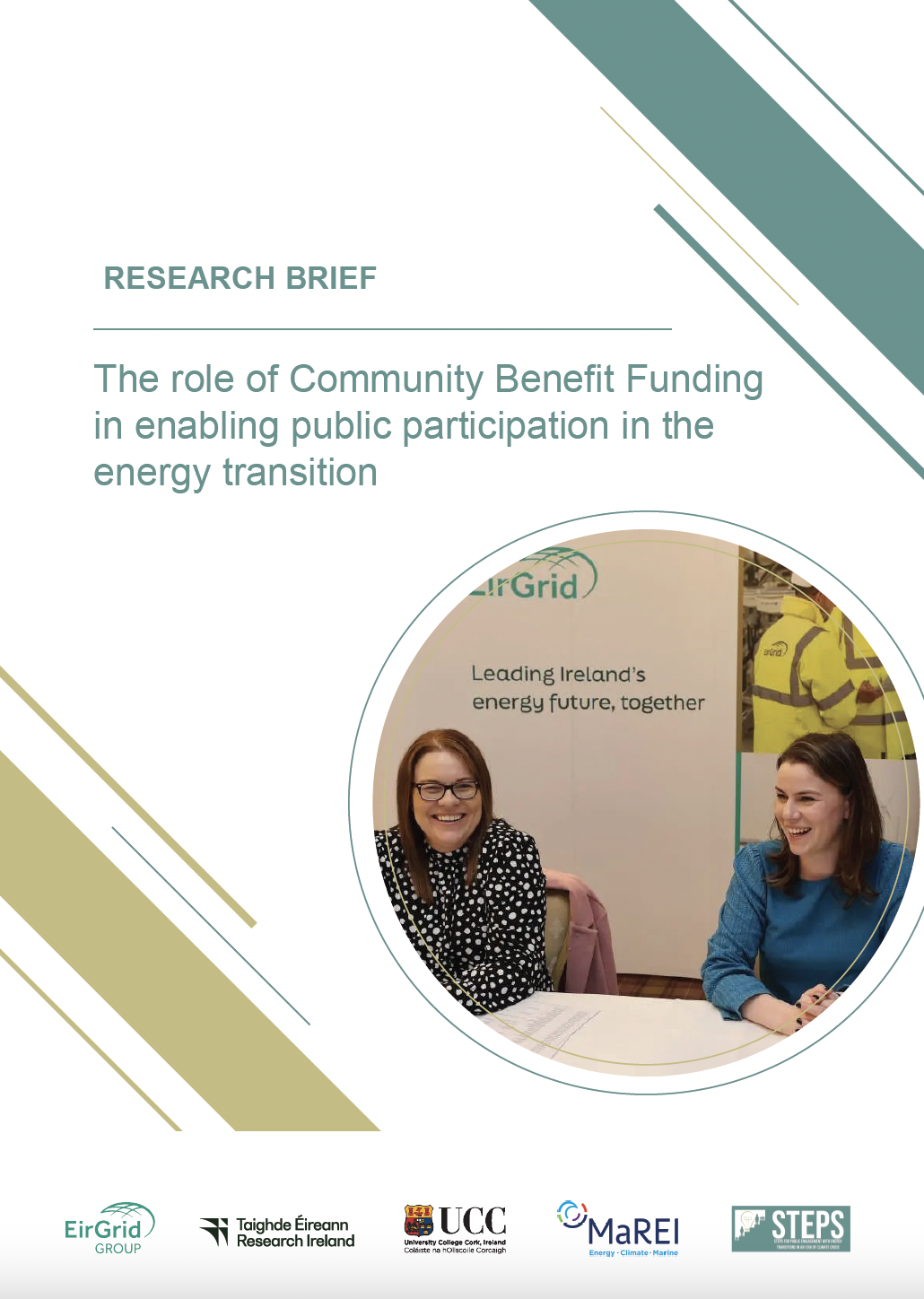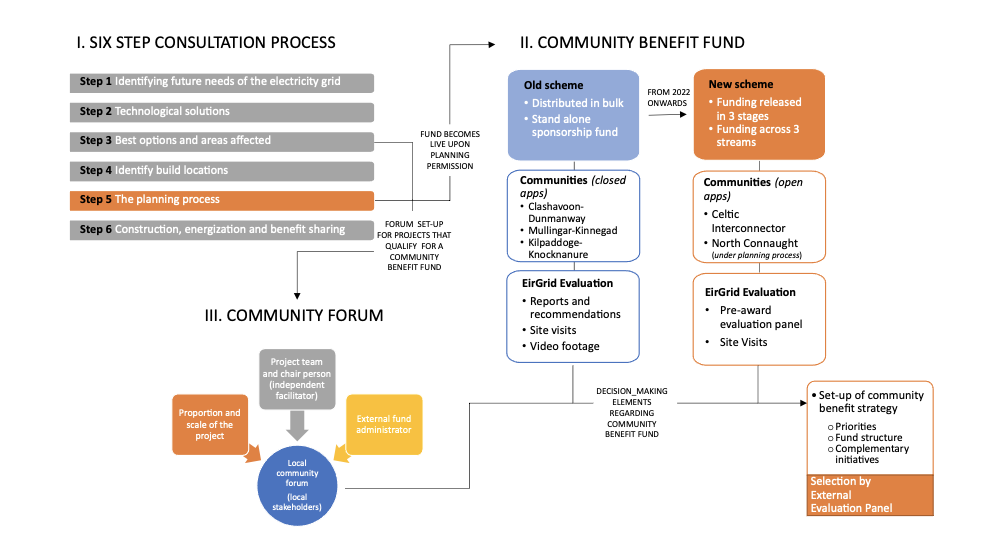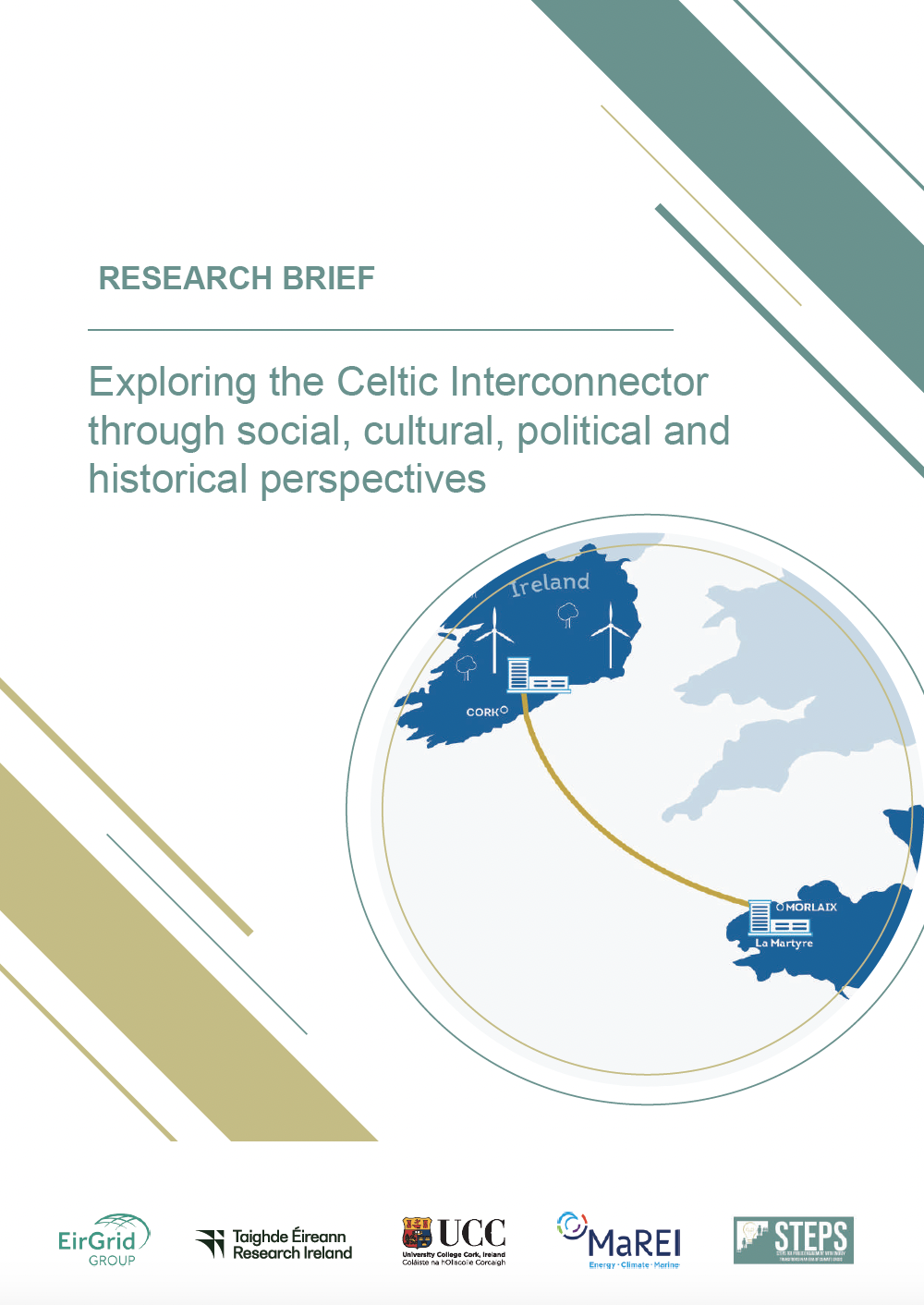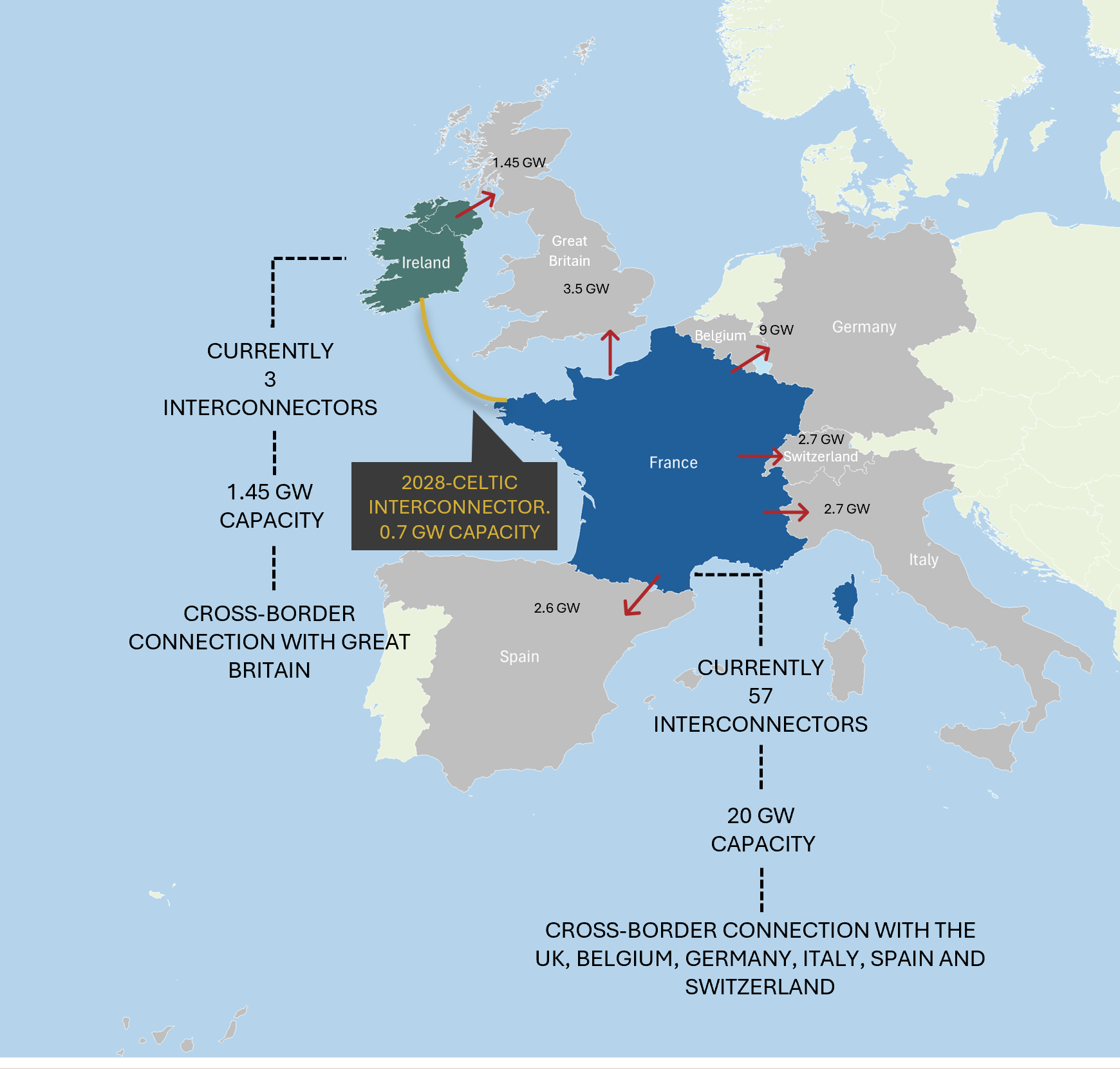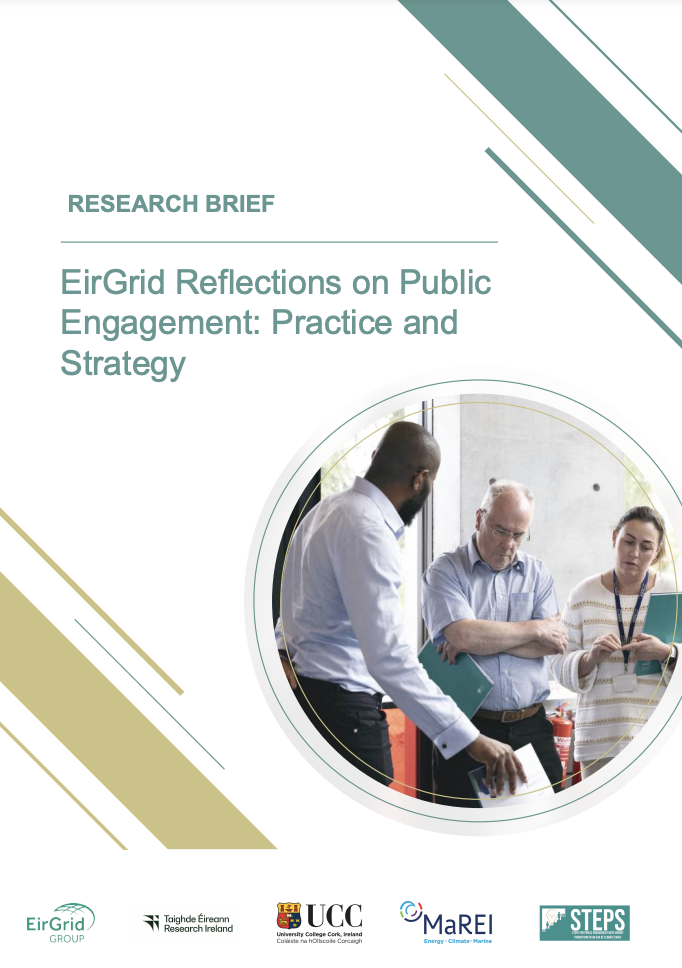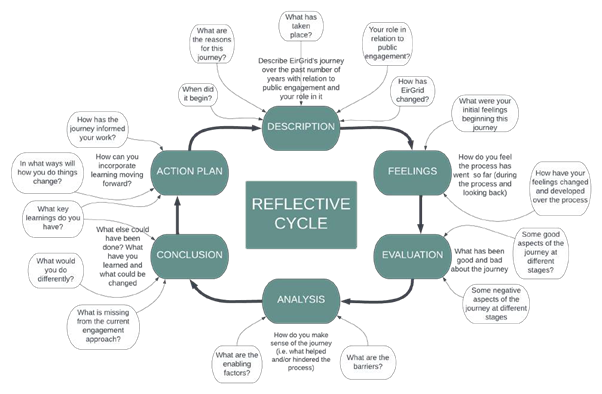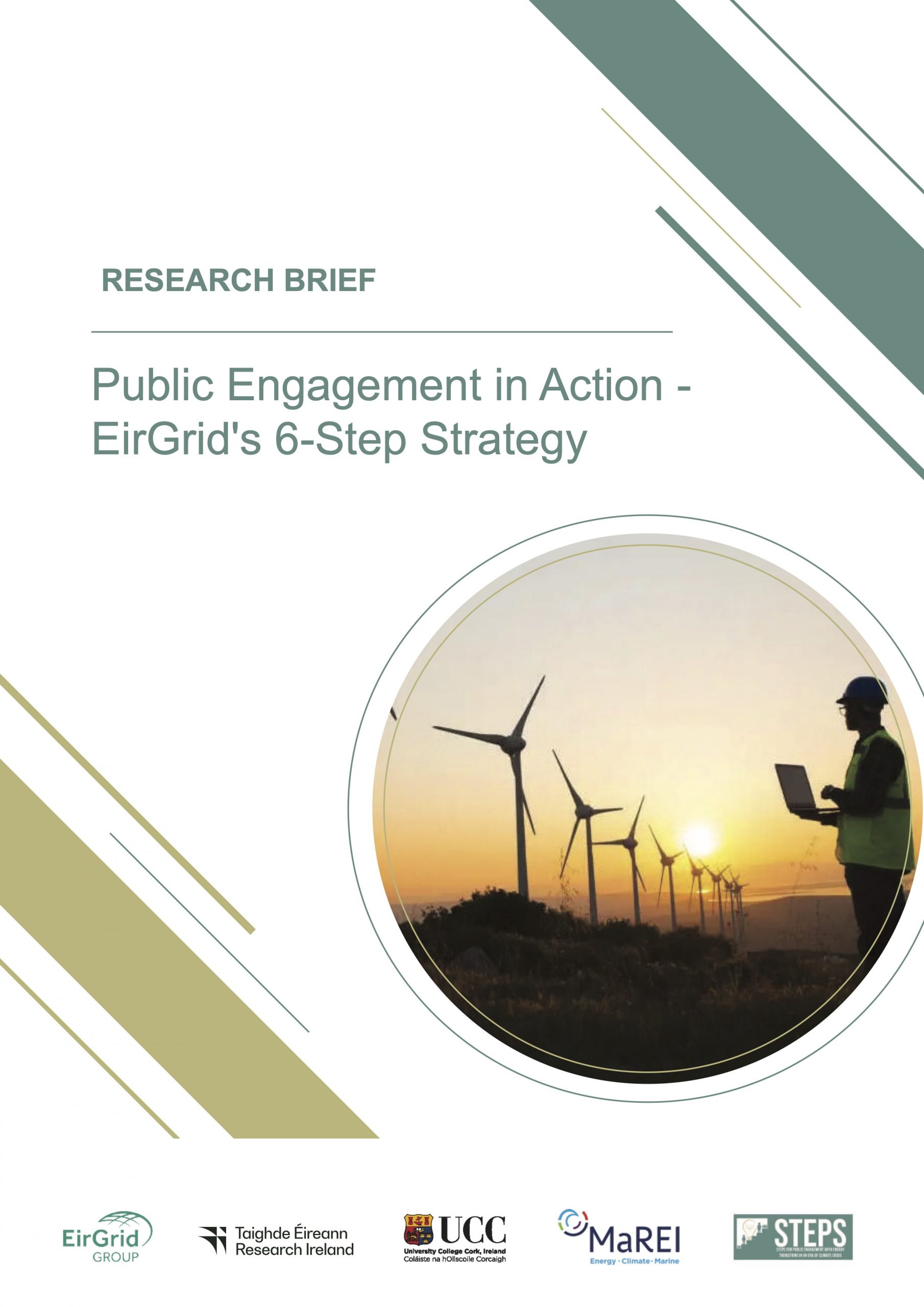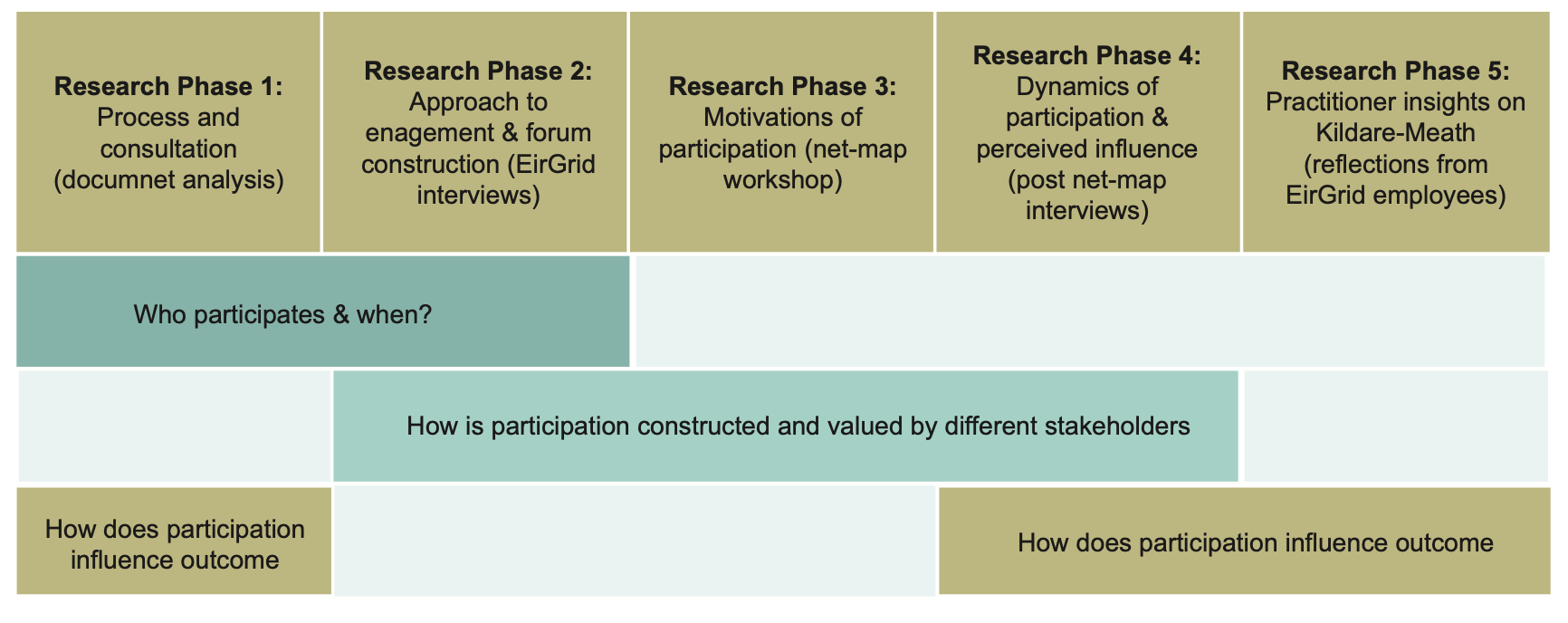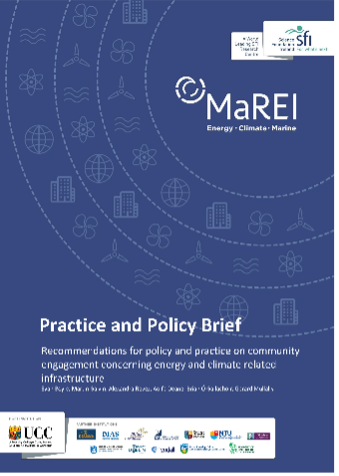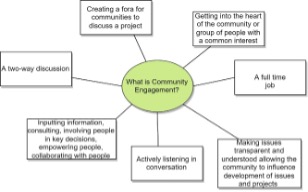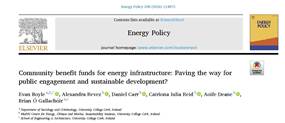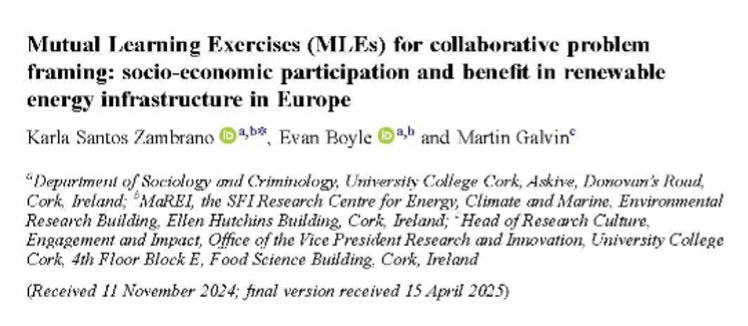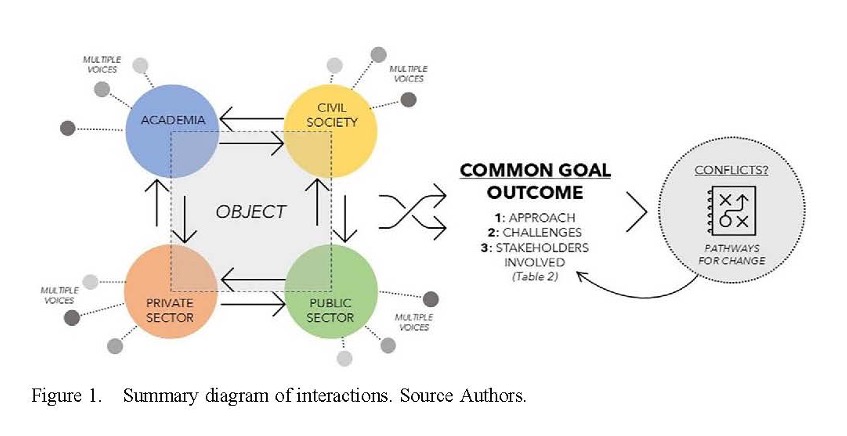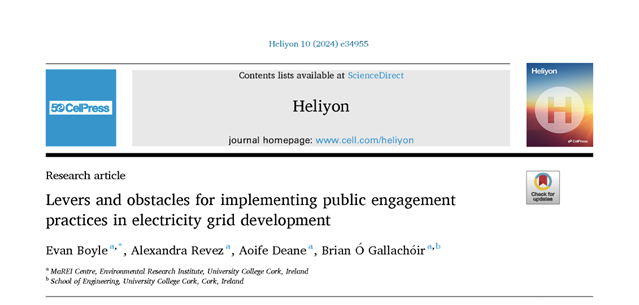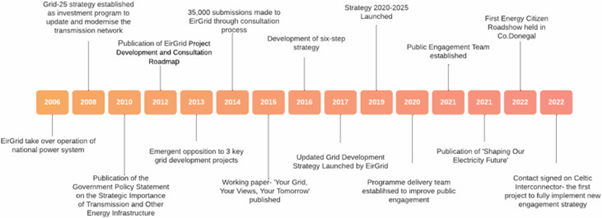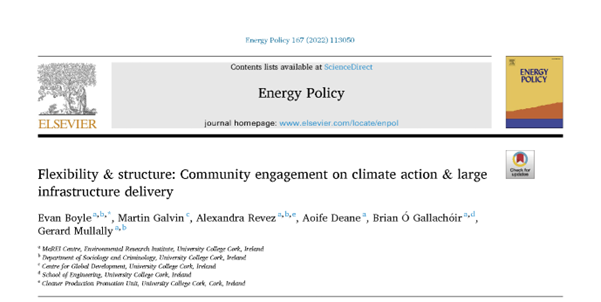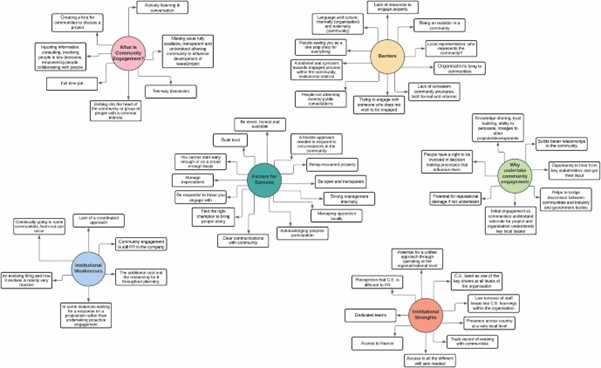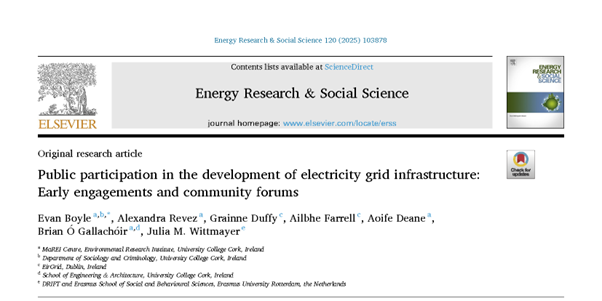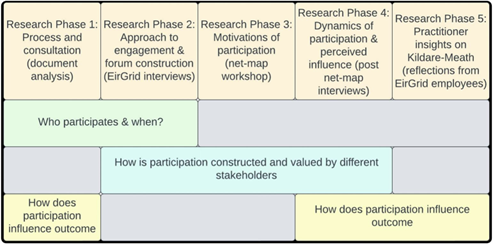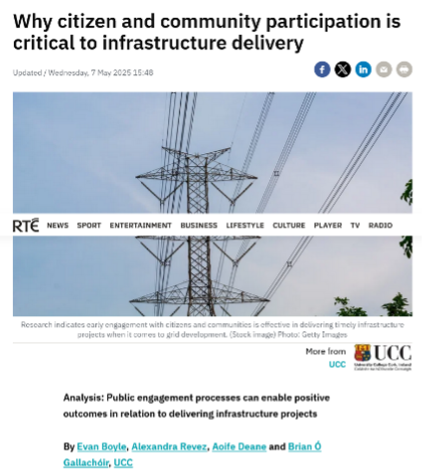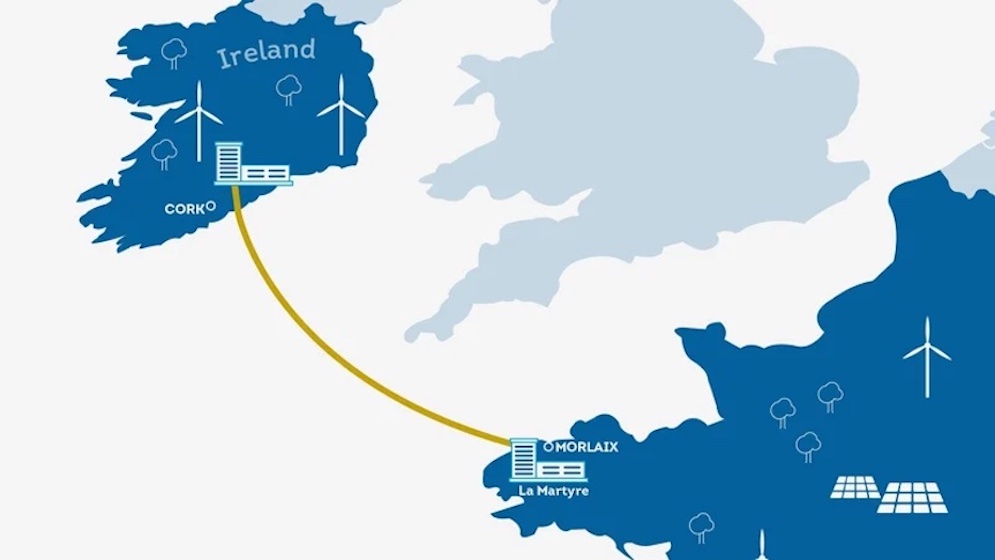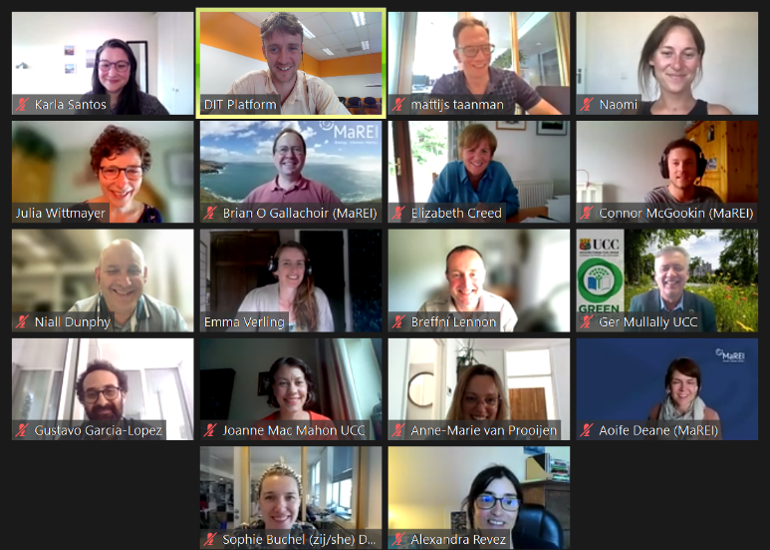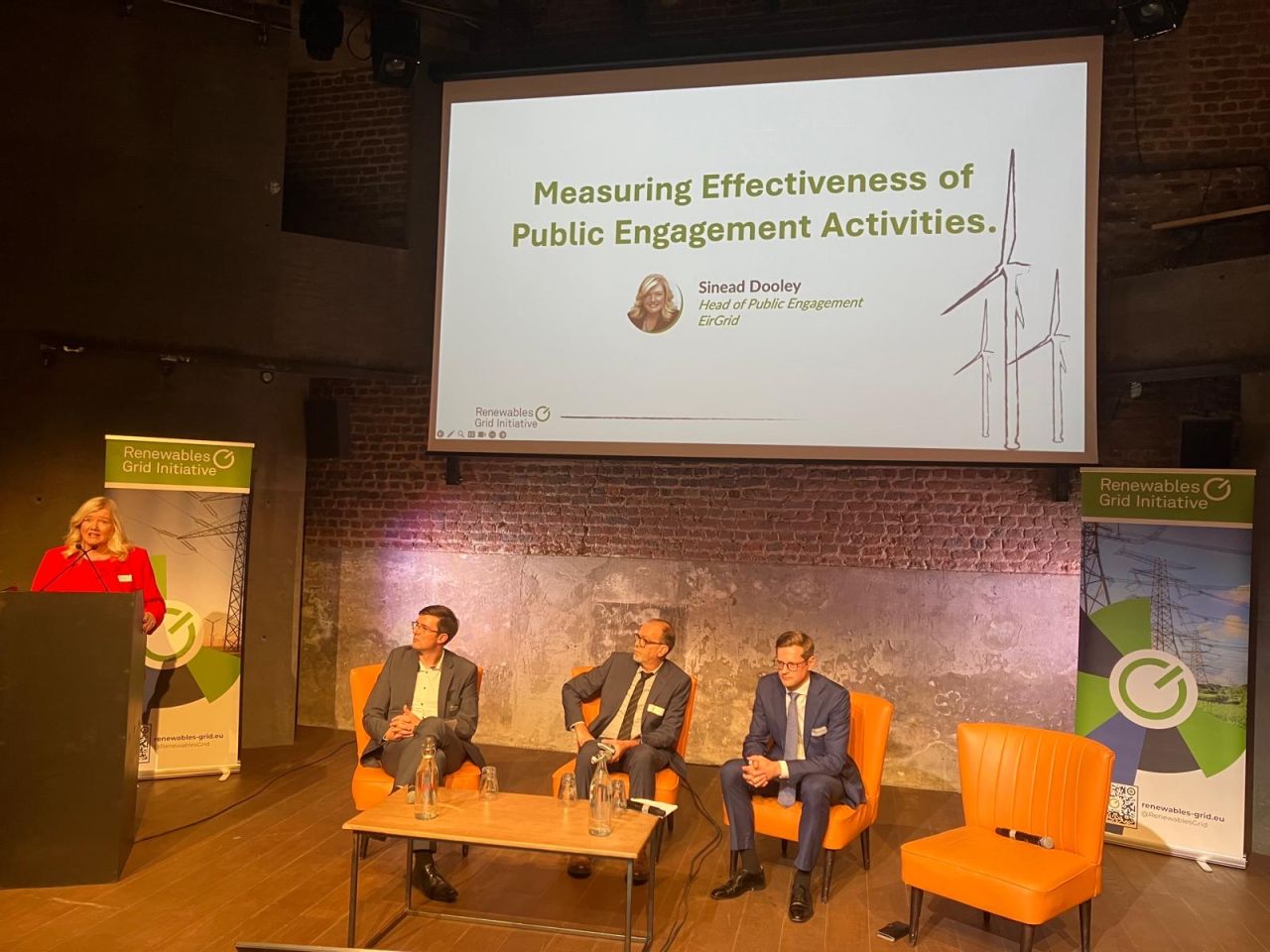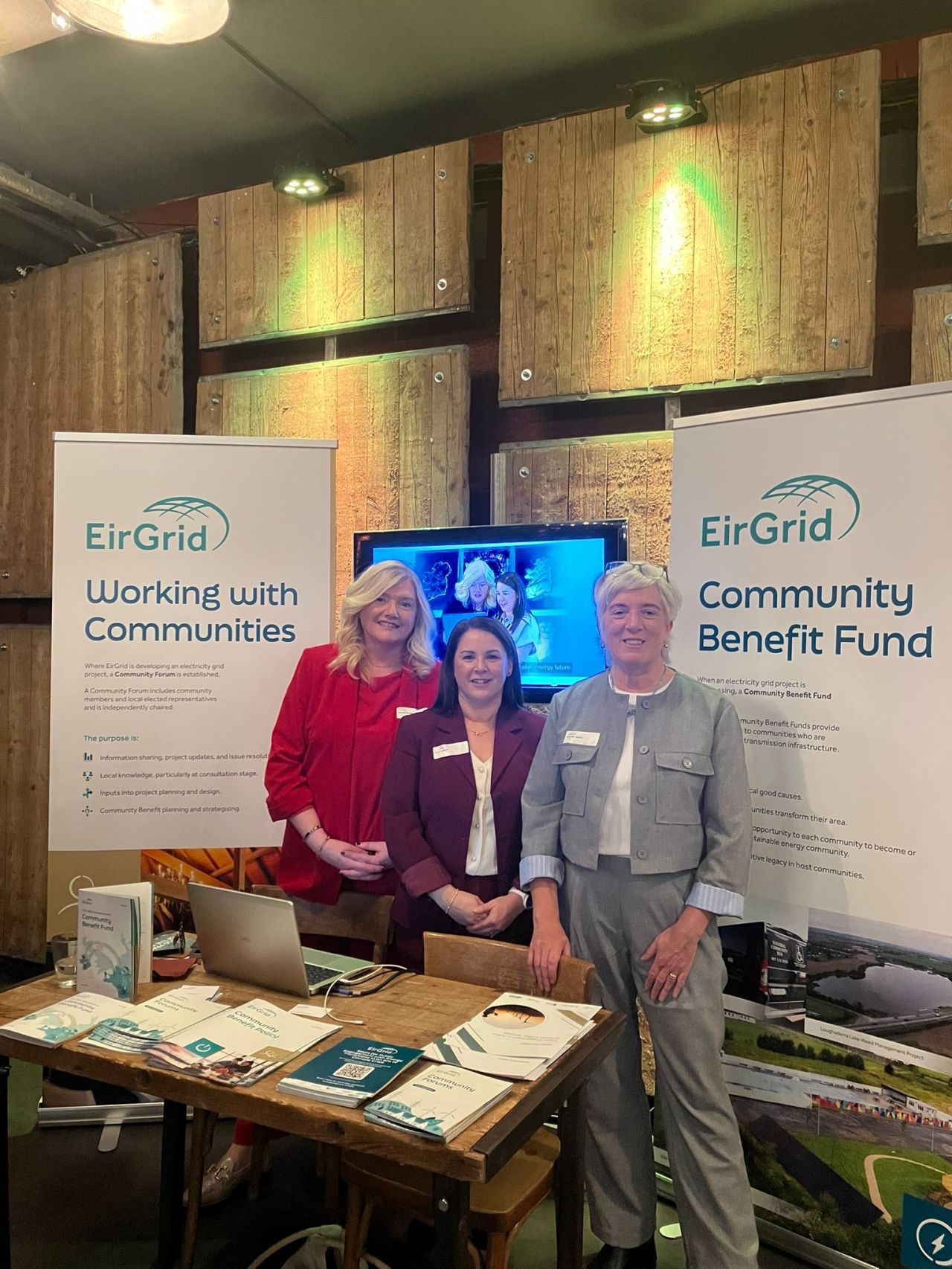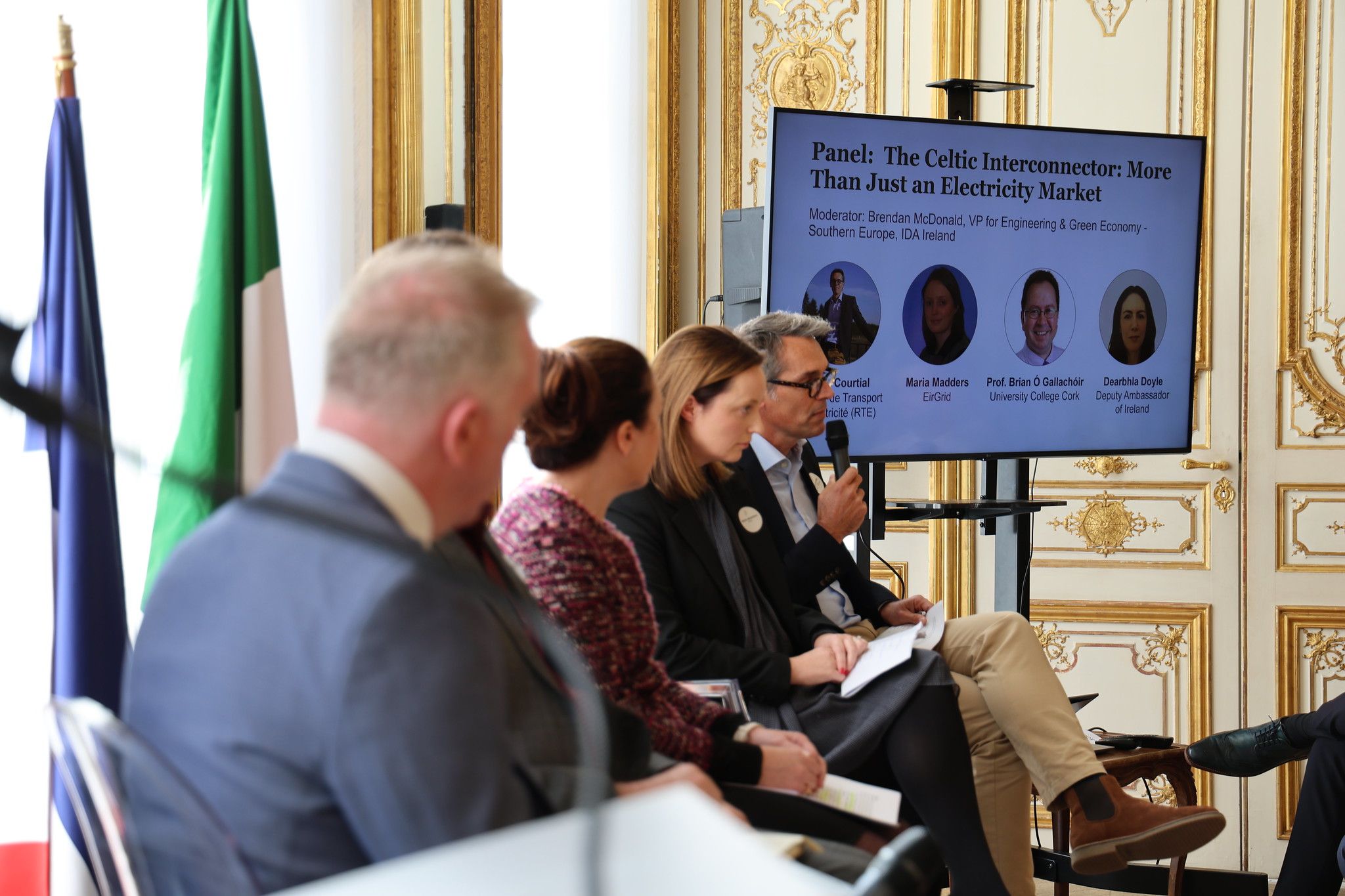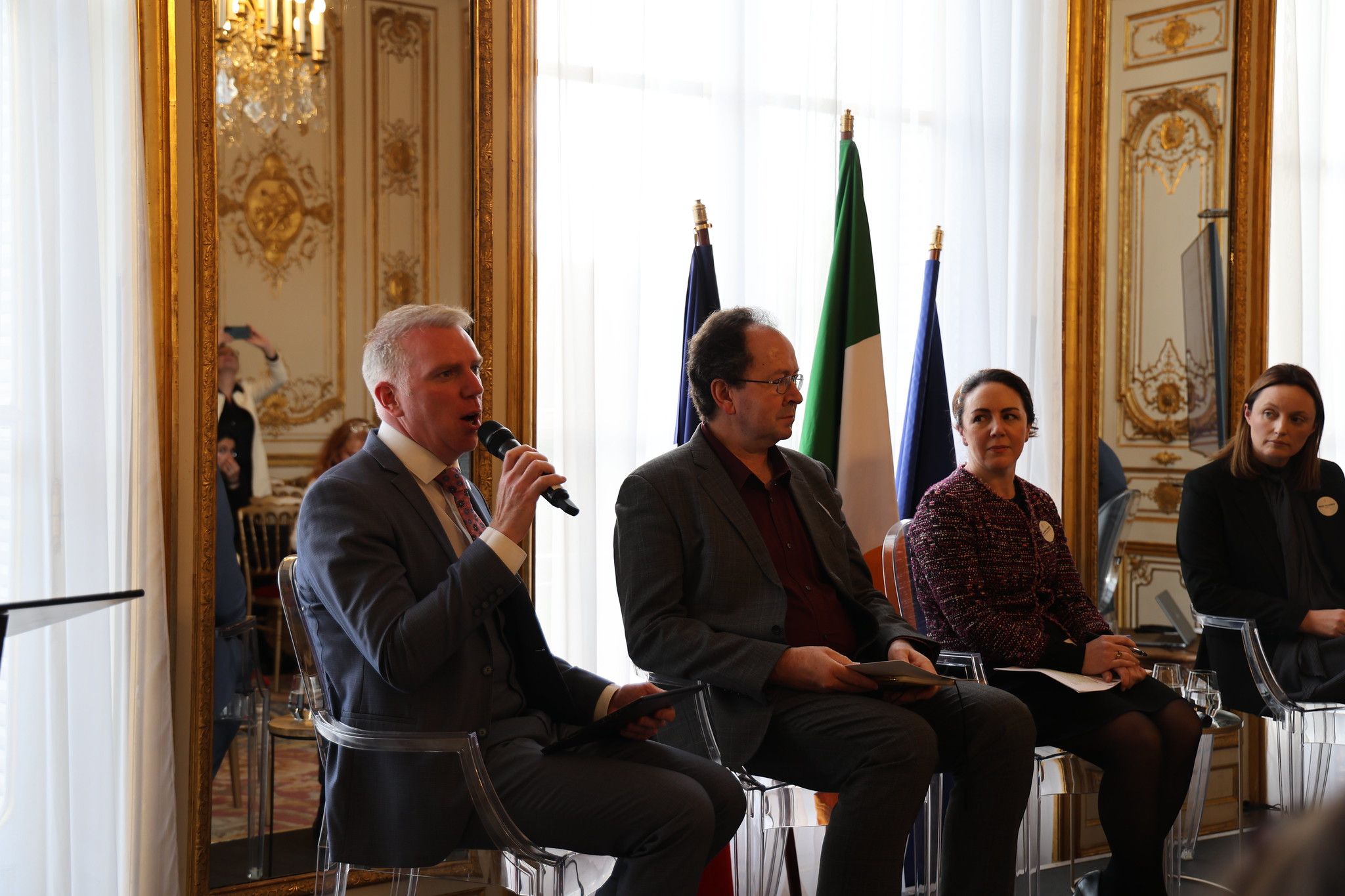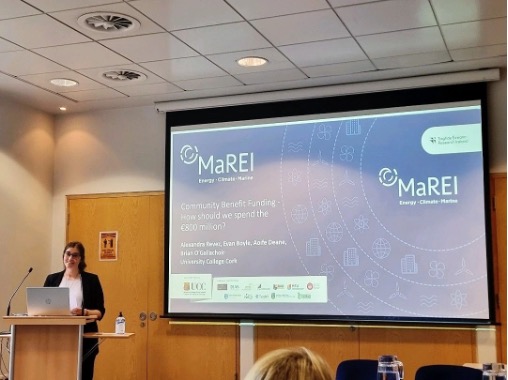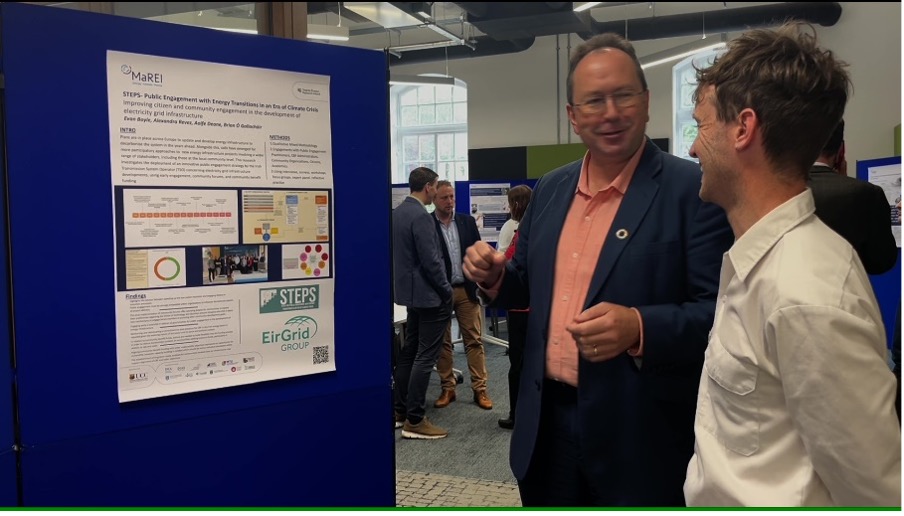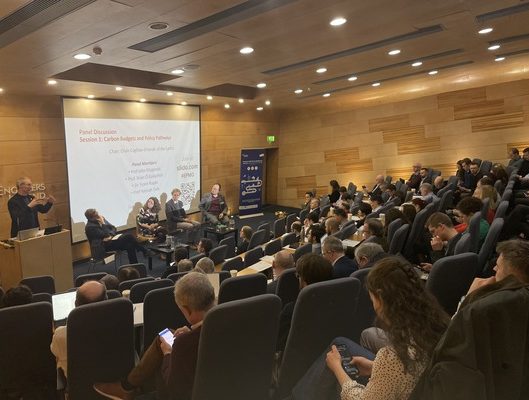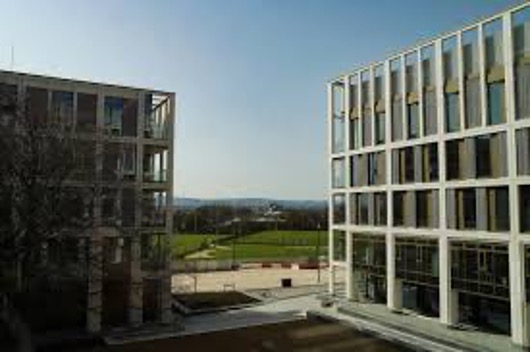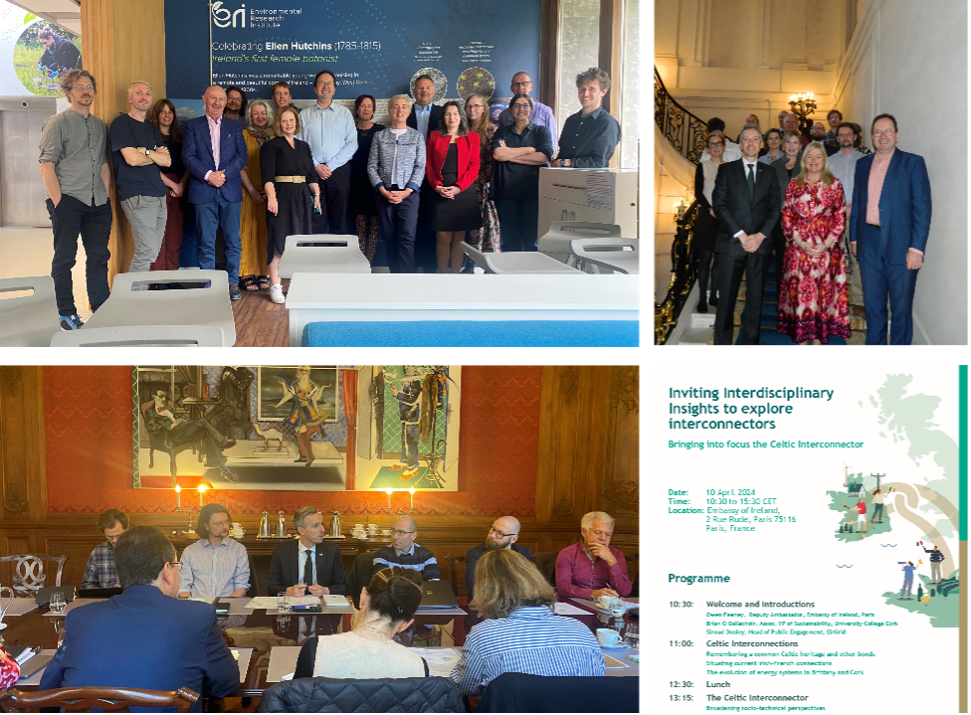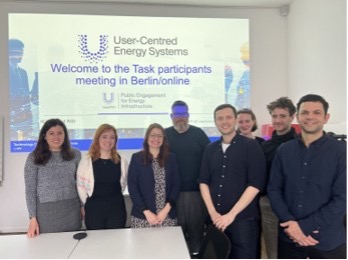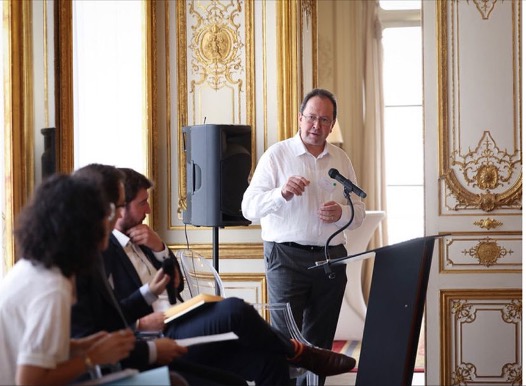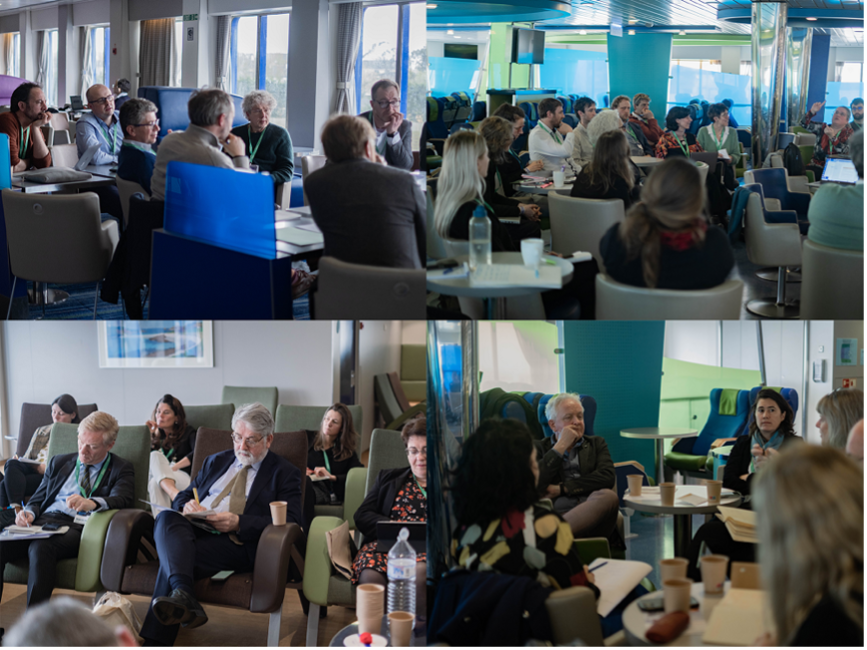
Steps for Public Engagement with Energy Transitions in an era of Climate Crisis
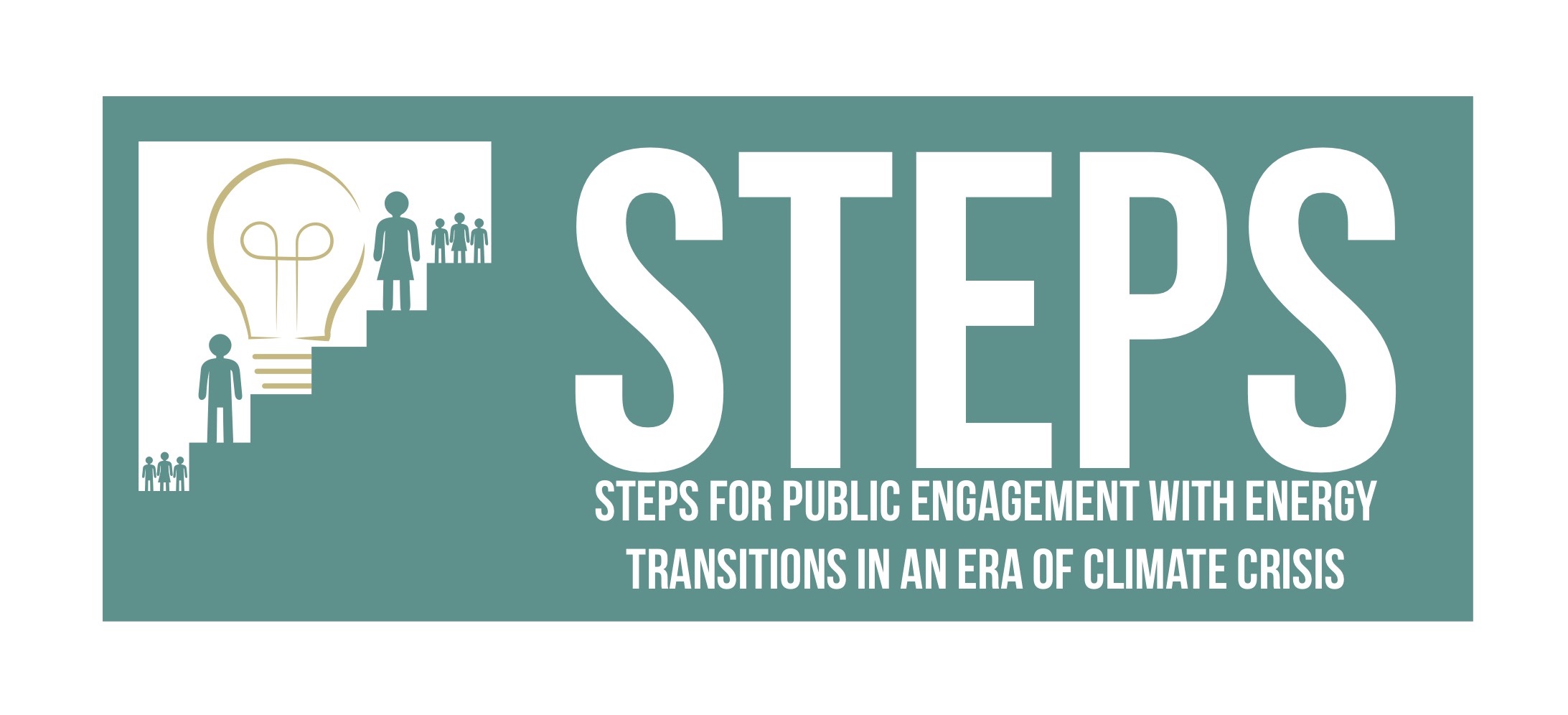
- Title
-
Steps for Public Engagement with Energy Transitions in an era of Climate Crisis
- Start Year
-
December 2021
- End Year
-
April 2025
- Funding Body
-
EirGrid plc
- Principal Investigator
- Team
STEPS project video - our research insights
As Europe transitions towards climate neutrality, public participation is recognised as central to achieving this ambition. This short video highlights our research insights from a 3-year research programme with EirGrid investigating the implementation of the transmission system operator’s evolving public engagement strategy as they redevelop their approach to support the expansion and upgrade of the network. The research explored evolving engagement practices relating to interconnection projects and community benefit funding through empirical and qualitative research, mapping and benchmarking it against international examples of public engagement with energy grid infrastructure
The key findings from the research demonstrate that effective strategies require a unified effort throughout the organisation, aligning operational goals with local engagement initiatives. Findings from further research reveal that EirGrid’s new engagement spaces foster opportunities that go beyond simply accepting or rejecting local projects, promoting broader community development goals. The challenges of scaling effective practices while considering socio-cultural differences and of incorporating valuable reflective learning among practitioners to inform practice and policy are also highlighted. Insights on the delivery of community benefit funding reveal that these funds encourage and present considerable potential in the future for deepening sustainable community initiatives and grassroots climate action. To maximize potential, community capacity must be strengthened, and local goals must be aligned with broader climate objectives
Introduction
The project entailed an impartial analysis of EirGrid’s evolving public engagement processes, based on a mapping of actors, and a framework to codify different elements of existing strategies. This approach offered guidance and suggestions throughout the consultation and engagement process lifecycle, seeking to improve both engagement processes and outcomes. This included the completion of comparative case study in Ireland and France drawing insights from the Celtic Interconnector Project and an exploration of the community benefit funding programme, which presented promising opportunities for communities to build and enhance their lead role as change agents at local level. Community benefit funding offered the potential to work alongside communities in receipt of the funding to investigate the process using an engaged research approach. This was done collaboratively with a view to fully understanding and realising the opportunity and enabling the communities to develop initiatives within the three-strand approach to community benefit, focussing on sustainability. Complementing this analysis, the project investigated innovative deliberative democracy instruments and processes with specific attention to aspects involved in promoting well-informed, equal and inclusive interactions that enhance energy citizenship.
Outputs
The research outputs of STEPS are diverse and include peer-reviewed publications in international multidisciplinary journals, which provide in-depth insights into the research. Additionally, there is a Research Brief series that summarizes the research findings, along with blog posts and news articles that present aspects of STEPS research to a broader audience.
Research and Guidance Briefs
| The role of Community Benefit Funding in enabling public participation in the energy transition
|
In this research brief, we share insights from two research papers. The first investigates how structured approaches to community benefit funding enhance community development and sustainability goals through an analysis of three EirGrid case studies in Ireland. The second paper aims to improve the design and monitoring of community benefit funds by gathering experts to identify areas of consensus and divergence.
|
| Guidance for Developing, Tracking and Evaluating Impact Pathways for Public Engagement with Energy Transitions
|
This guidance brief provides instruction on various opportunities for tracking and evaluating impact pathways for public engagement on an on-going basis serving as a key step to implement meaningful and responsive practices through enhanced knowledge sharing and monitoring.
|
| Exploring the Celtic Interconnector through social, cultural, political and historical perspectives
|
This research brief examines how social, cultural, and historical contexts influence interconnection, challenging the idea that it consists solely of physical transmission lines or transactions. The Celtic Interconnector project, an initiative between Ireland and France supported by the European Commission, exemplifies this by highlighting the rich historical and geographical exchanges between people and places.
|
| EirGrid Reflections on Public Engagement: Practice and Strategy
|
This research brief summarizes findings from the STEPS project in two papers exploring public engagement through reflective practice. The first paper gathers insights from practitioners and reviews international literature, while the second examines the development of EirGrid’s public engagement strategy, highlighting challenges and opportunities in infrastructure development.
|
|
This research brief outlines findings from our study which paid specific attention to the implementation of EirGrid’s 6-step strategy. The results indicate that early engagement with citizens and communities is feasible and effective in delivering timely infrastructure projects related to grid development. Despite the complexities involved, such as time, resource, and operational constraints, the research demonstrates that practitioners and local stakeholders’ value early community involvement.
|
|
| Recommendations for policy and practice on community engagement concerning energy and climate related infrastructure
|
This research brief presents guidelines and policy recommendations resulting from a collaborative research intervention between MaREI and various public bodies in Ireland. It explores community engagement regarding energy and climate-related infrastructure.
|
Journal Articles
| Community benefit funds for energy infrastructure: Paving the way for public engagement and sustainable development?
Energy Policy DOI: https://doi.org/10.1016/j.enpol.2025.114873
|
Within this research we investigated 3 case studies across Ireland where different strategic approaches to community benefit funding has been implemented by TSO, EirGrid. Increasingly important to infrastructure developments in Ireland, this work provides insights on community benefit funding for a range of infrastructure developers (e.g. wind, solar etc.). We provide policy recommendations to better enable communities to take advantage of opportunities provided by community benefit funds.
|
| Public engagement practice for electricity grid system change
Journal of Environmental Policy & Planning |
This paper explores practitioner reflections on engaging the public in grid infrastructure development focusing on policy development and knowledge transfer for energy system change. We overlay literature review insights and practitioner reflections by drawing on two collaborative workshops held with public engagement officers from EirGrid, the transmission system operator (TSO) in Ireland.  |
| Mutual Learning Exercises (MLEs) for collaborative problem framing: socio-economic participation and benefit in renewable energy infrastructure in Europe
Innovation: The European Journal of Social Science Research DOI: https://doi.org/10.1080/13511610.2025.2496175
|
This paper documents and examines the use of Mutual Learning Exercises (MLEs) as a methodology to bring diverse stakeholders together to explore and exchange best practices associated with the development of renewable energy infrastructure in Europe, via mutual exposure of views and experiences, expectations, and concerns around the energy transition. MLEs are an innovative methodology being piloted within the UNIC European University Centre for City Futures under ‘UNIC CityLabs’, a large-scale pan-European Change Laboratory that facilitates city-engaged learning and research.
|
| Levers and obstacles for implementing public engagement practices in electricity grid development.
Heliyon.10(15). https://doi.org/10.1016/j.heliyon.2024.e34955
|
The societal dimensions of the energy transition are increasingly recognised as centrally important and approaches to infrastructure development which seek to incorporate such considerations are warranted. EirGrid – Ireland’s national electricity transmission operator – through their own historical context, have undergone a journey to develop new strategies for citizen and community engagement with relation to energy grid developments. Here, we reflect upon this journey, situating it within their previous failures and the national context.
|
| Flexibility & structure: Community engagement on climate action & large infrastructure delivery.
Energy Policy.167:113050. https://doi.org/10.1016/j.enpol.2022.113050
|
This study examines the function of community and citizen involvement in climate mitigation initiatives, with a focus on climate infrastructure development in Ireland. We develop a range of good practice guidelines for community engagement that seek to connect, build and improve current mitigation measures and on from this suggest policy measures for their implementation. The paper sets the foundations for developing a co-production framework for climate related infrastructure developments between citizens, communities and public bodies.
|
| Public participation in the development of electricity grid infrastructure: Early engagements and community forums.
Energy Research & Social Science.120:103878. |
The central research question within this paper is as follows: How and to what extent do participatory practices open spaces of influence for community actors to partake in decision-making regarding electricity grid developments? We investigate a grid development project to highlight the central importance of early engagement with citizens and communities in the delivery of infrastructure projects and provide an outline of the innovative creation of the community forum as a conduit to wider community participation.
|
News Pieces
| News Piece
‘The only way is a bottom-up approach, the meitheal approach, sitting down with people’
Thu Jan 08 2026
|
Piece led by EirGrid reflecting on insights from STEPS on placing public engagement at the heart of projects is helping to achieve a societal shift towards energy transition
|
| Perspectives Article
New directions for interconnector research: drawing from social sciences and humanities perspectives to explore the Celtic Interconnector |
This discussion article explores new ways to understand, analyse and engage with electricity cross-border interconnectors, incorporating perspectives from the social science and humanities (SSH). Instead of adhering to conventional definitions of interconnectors as structural transmission lines without context, we focus on the human-centred elements of the Celtic Interconnector, a 700 MW high-voltage electricity link currently being built across the Celtic Sea between Ireland and France. |
| News Piece
How can communities benefit from €1bn fund transfer from renewable energy companies? Thu Nov 27 2025 – 12:04 |
This news piece considers the role of community benefit funds as a useful way to enhance public engagement with energy and sustainability and address delays in developing infrastructure
|
| Why citizen and community participation is critical to infrastructure delivery
RTE Brainstorm Wednesday, 7 May 2025 15:48 [Available Online]
|
Analysis: Public engagement processes can enable positive outcomes in relation to delivering infrastructure projects
By Evan Boyle, Alexandra Revez, Aoife Deane and Brian 6 Gallachoir, UCC
|
| Why the Celtic interconnector is about more than just electricity
RTE Brainstorm, Friday, 16 Aug 2024 16:11 [Available Online] |
This RTÉ Brainstorm article addresses the debates surrounding the Celtic Interconnector, Ireland’s first direct electricity link to continental Europe via a 500 km underwater cable connecting Cork and Brittany. The article shines a light on how the social sciences and humanities play a crucial role in understanding the cultural and historical ties that make this technological partnership possible.
|
Blog Post
| What is the right kind of change? | Highlights from a workshop on action-oriented research for energy transitions
On the 16th of June 2022, the DIT platform at Erasmus University Rotterdam and University College Cork co-hosted a workshop to encourage new opportunities to share work and ideas to further action-oriented research for energy transitions and climate neutrality. In this blog, we summarize some key insights based on the discussion.
|
Work Packages
| WP1: Project Management | |
| Description | WP1 aims to ensure the achievement of the project’s objectives through the timely and effective delivery of tasks, deliverables and milestones. Targeted technical and administrative co-ordination together with efficient organisational and financial management will ensure this is achieved according to the contractual arrangements. Activities will include:
● Administration and management e.g., financial control, ethical approval, risk management, transdisciplinary advisory group review; |
| WP2: Transition Based Assessment of Actors, Roles, and Agency in Energy Grid System Change | |
| Description | WP2 is linked to Tasks 1 and 4 (as per the proposal). It offers a critical, and integrated review of previous international work on engagement practices with the energy grid. Reseach work involves a transition based assessment of different actors, roles and agency in energy system change, this will comprise:
● A synthesis review of international literature on engagement practices in electricity grid system change; |
| WP3: Comparative Analysis of Community Benefit Fund | |
| Description | ● Scoping review of community benefit literature; ● Mapping existing initiatives and stakeholders; ● In-depth case-study research in three different locations; ● Comparative analysis of findings. |
| WP4: International Case-Study evaluation of community engagement in grid development | |
| Description | WP4 is linked to Tasks 3 and 5. It provides good practice insights drawing from international literature as well as an investigation of engagement practices in Ireland and another EU member State. The International comparative dimension of this work builds on a strategy of engagement and partnership with various stakeholders, this will comprise:
● Development of multi-stakeholder engagement plan; |
| WP5: Dissemination & Exploitation | |
| Description | WP5 includes four main areas of work: developing and implementing a Dissemination and Communications Strategy to promote awareness of the project; maximising the dissemination and impact of each key deliverable; carrying out a series of tailored dissemination activities targeting specific groups of stakeholders; and enabling the continued exploitation of the results after the project’s conclusion. Activities will include:
● Establish project identity and presentation guidelines, including brandings and templates for all deliverables; |
Team Biographies
Prof. Brian Ó Gallachóir (MaREI Centre Director; Team Leader RA6 ‘Energy Policy & Modelling’)

Prof. Ó Gallachóir serves as the Centre Director of MaREI, Chair of Energy Engineering in UCC, and as Director of the B.E. (Energy) and M.Eng.Sc. in Sustainable Energy. His research focuses on energy modelling to inform energy and climate change mitigation policy. Brian is an elected Chair of the Executive Committee of IEA’s Technology Collaboration Programme on energy systems modelling (IEA-ETSAP). Brian has published extensively and has directly informed energy and climate action policy decisions. He is lead PI in Climate Lab, an initiative of UCC’s ERI, and is a member of the national Gas Innovation Group. Brian has a B.Sc. from TCD and a PhD from UCC.
Ms. Aoife Deane (MaREI Communications & Public Engagement Manager)
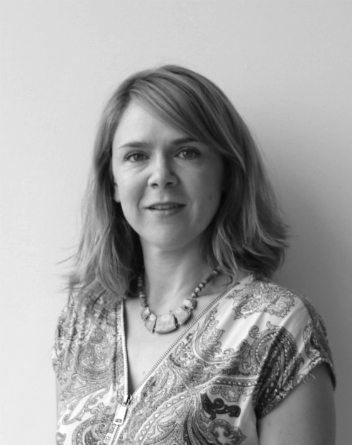
Aoife is an experienced science communication and engagement professional with 20 years’ experience in the sector. She graduated from UCC in 2001 with a BSc in Earth Sciences and completed a master’s in science communication in Queens University Belfast. Aoife has been working in UCC since 2008, and with MaREI since 2015 where she led the development and implementation of MaREI’s Public Engagement Strategic Plan 2019-2025. Aoife’s CPD training has included Climate Communications, Project Management, Creative Facilitation, Logic Modelling, Impact Assessment, and Community Based Social Marketing. Her research interests include Evaluating and Assessing the Impact of Engaged Research in Climate Action.
Dr. Evan Boyle
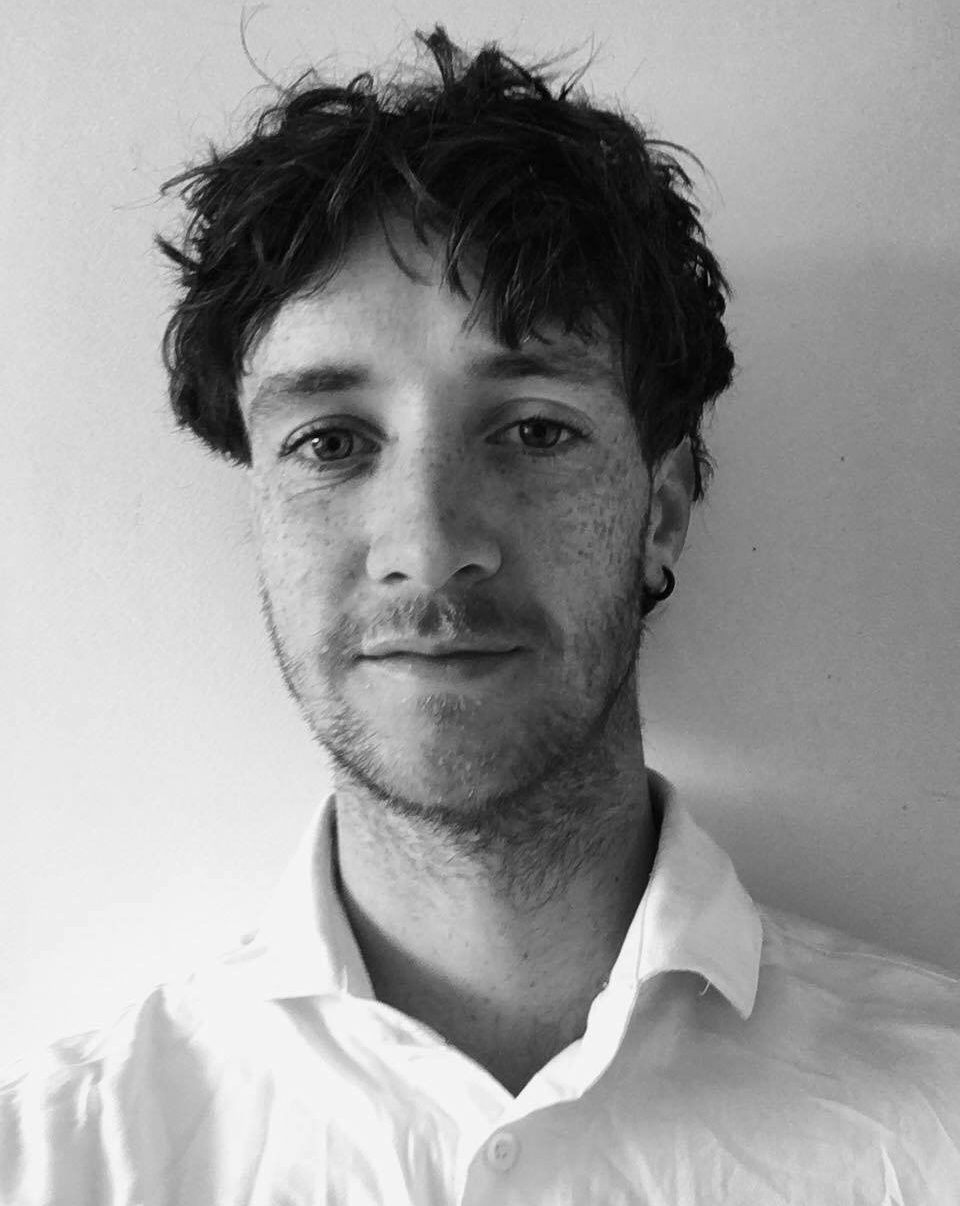
Evan is a postdoctoral researcher with the MaREI Center and the Department of Sociology and Criminology, University College Cork. His research focusses on community engagement and transdisciplinary approaches to sustainability. He has recently published work in International Political Anthropology, Energy Research & Social Science, and Local Environment. In addition, he has recently contributed a book chapter to Metaphor, Sustainability, Transformation (2021) published through Routledge. Throughout his PhD, he applied action research methods for the investigation of a multi-stakeholder approach to the socio-technical transition to a low-carbon society in a regional context, in collaboration with the Dingle Peninsula 2030 initiative. He has also been active in the Imagining 2050 project, and has been involved in lecturing/tutoring roles within the Department of Sociology and Criminology for the past five years, covering a range of topics including Social Theory, Sociology of Community, and Sociology of the Environment.
Dr. Alexandra Revez (Research Fellow)
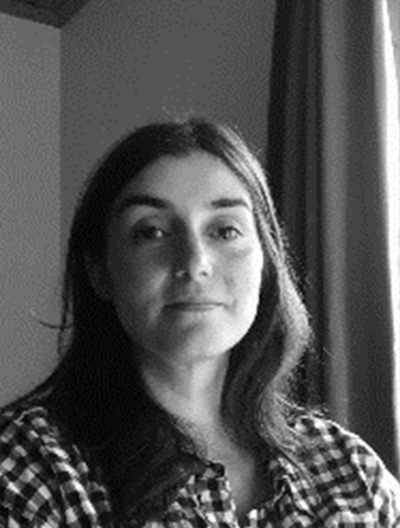
Alexandra is a Research Fellow in MaREI. She is a practiced academic with expertise in Human Geography, Political Science & Sociology and Community Development. Her recent collaborative research work with the Imagining2050 project has focused on democratic innovations, co-creation, leveraging collective imaginations and engagement with communities on issues linked to climate action in Ireland. Alexandra is an external expert advisor with the Teaching Council, a member of the ‘Enabling Societal Transformations’ JPI Climate Action Group, and a member of the newly established ‘Gender and Energy’ IEA Task Force.
Events
| Policy event
Climate Action & Energy Security: Insights and Outputs.
Monday, 15 Dec, 2025
Location, Engineers Ireland, Dublin |
Featured keynote addresses from former ministers Denis Naughten and Eamon Ryan, along with various EPMG researchers and experts. The event brought together stakeholders from policy, industry, and NGOs. Dr Evan Boyle delivered a keynote address on ‘The role of Community Benefit Funding in enabling public participation in the energy transition’
Video of event available here: https://youtu.be/FyIq7aV8xro |
| Policy event
6 November 2025
Community of practice on people centred grid transformation
Government Office for Science, 100 Parliament Street, Whitehall, London SW1A 2HQ London |
Guest Speaker presentation delivered by Evan Boyle on’ “Community benefit funds for energy infrastructure: Paving the way for public engagement and sustainable development?” |
|
Public workshop
Thursday 23 October 2025, 09:30 – 18:00 (CEST)
Location
Brussels, Belgium
|
Sinead Dooley, EirGrid’s Head of Public Engagement, participated in ‘The Power of Participation – Advancing Public Engagement in Grid Planning’ event, organised by the Renewables Grid Initiative, the European Commission, and the EU Agency for the Cooperation of Energy Regulators. Sinead contributed to a discussion on evaluating effective public engagement, sharing insights from the STEPS project and their research partnership with the STEPS team in University College Cork.
|
| Conference
Thursday, October 23, 2025 12 – 7:30pm CEST
The 3rd annual Ulysses Conference by Embassy of Ireland, France
Location
Embassy of Ireland
2 rue Rude 75116 Paris France
|
The 3rd annual Ulysses Conference examines progress made in the energy transition, featuring spotlights on Franco-Irish research. This year’s conference reflects on the 10th anniversary of the Paris Climate Agreement, with a particular focus on energy, exploring adaptation, transition and the Celtic Interconnector.Prof. Brian Ó Gallachoir delivers a note on the Celtic Interconnector – More Than Just an Electricity Market.
|
| Seminar
Monday, June 16, 2025 13th MaREI Climate & Energy Research Seminar
|
The Research Seminar covered topics related to climate policy, the residential energy use, and the electricity sector. The seminar builds on a strong history of collaboration between UCC and the ESRI, with both institutions partners in Research Ireland MaREI Centre for Energy, Climate and Marine. STEPS research was showcased by Alexandra Revez under the title ‘Community Benefit Funding – How should we spend the €800 million?’
. |
| Poster Session
Tuesday, 27 May, 2025 MaREI showcase and poster session. |
The STEPS project was selected as a flagship project across within MaREI. Experts in engaged research and energy research were invited to a showcase of exemplar research. Researchers Evan Boyle, Aoife Deane, Alexandra Revez and the lead STEPS PI Brian O’Gallachoir attended this important showcase event held in UCC Futures Sustainability Lab.
. |
| Showcase
Tuesday, 17, December, 2024 |
The Energy Policy and Modelling Group had a wonderful morning at Engineers Ireland, showcasing energy modelling research and policy insights from University College Cork focusing on carbon budgets, policy pathways, emissions, energy security and engagement in infrastructure.
Great discussions with nearly 100 stakeholders and friends from policy, industry and NGO communities. A video of the event is available here . |
| Seminar
Friday, 26 April, 2024 “Celtic Interconnections: Generating and Consolidating Energies.” |
The seminar was held at TU Dublin Grangegorman Campus. Industry and academic experts discussed the links between Ireland and France. The National Centre for Franco-Irish Studies seminar at TU Dublin primarily focused on energy-related matters. Topics ranged from the practicalities of electricity interconnection to the importance of ensuring EU energy independence, with frequent references to the longstanding cultural ties between Ireland and France. Programme available here.
|
| Two open-space Workshops
Wednesday, 10 April, and Thursday, 16 May, 2024 Inviting Interdisciplinary Insights to explore interconnectors Bringing into focus the Celtic Interconnector
|
Two workshops were held in Paris and Cork, inviting Interdisciplinary thinking to explore the Celtic Interconnector. The first event, hosted by the Irish Embassy in Paris, took place on 10 April 2024. The Second Event hosted by University College Cork in Cork City took place on 16 May 2024. The Celtic interconnector is expected to bring multiple benefits to Ireland and France, including facilitating progress toward a low-carbon electricity mix. Besides more direct benefits associated with this subsea electricity link connecting Cork to Brittany, there are further perspectives that can be explored by considering ideas around social and technological change.
|
| IEA USERS-TCP Conference Session
Tuesday, 28 November, 2023 Public Engagement with Energy Infrastructure
|
Members of the STEPS project represented Ireland for the Public Engagement for Energy Infrastructure Task and International Energy Agency Users-TCP Initiative. On 28 November, the Task presented part of its work at the BEHAVE Conference in Maastricht during the Session ‘Introducing a toolkit to apply behaviour insights to energy policy’. Participants learned about drivers and barriers of public engagement and provided insights into the role of different stakeholders during the project development.
|
| Research Event
Wednesday, 6 September, 2023 Franco-Irish research event on offshore wind energy potential in the Atlantic |
Professor Brian Ó Gallachóir moderated a Franco-Irish research event on offshore wind energy potential in the Atlantic, hosted by Ambassador Niall Burgess and Barry Tumelty in the Irish Embassy in France. Key attendees included Robert McGuinness, Nicolas Clausset, and Dounia Khallouki, who provided policy updates, alongside insights from Liam Curran and Carmen Muñoz. EirGrid CEO Mark Foley and Régis Boigegrain from Réseau de Transport d’Électricité discussed progress from transmission system operators.
|
| Symposium
29, March, 2023
|
A scientific conference brought together the four Breton universities – the University of Rennes, the University of Western Brittany, the University of Southern Brittany and the University of Rennes 2 – and those of the Irish Atlantic coast – University College Cork, University of Galway and University of Limerick.
|
| UNIC City Lab
Tuesday, 22 November 2022 14:00 (GMT) The Socio-Economic Opportunities from European Renewables
|
This CityLab explored different approaches to the socio-economic opportunities related to European renewables and outlined ways to develop more equitable strategies, aligning with a just transition approach. Many renewable energy incentive schemes open to citizens take an individualist approach and conflict with the principles of a just transition as they can result in the energy-poor cross-subsidising the energy wealthy, who then have the capacity and resources to actively and directly engage in the energy transition (e.g., solar PV grants, feed-in tariffs).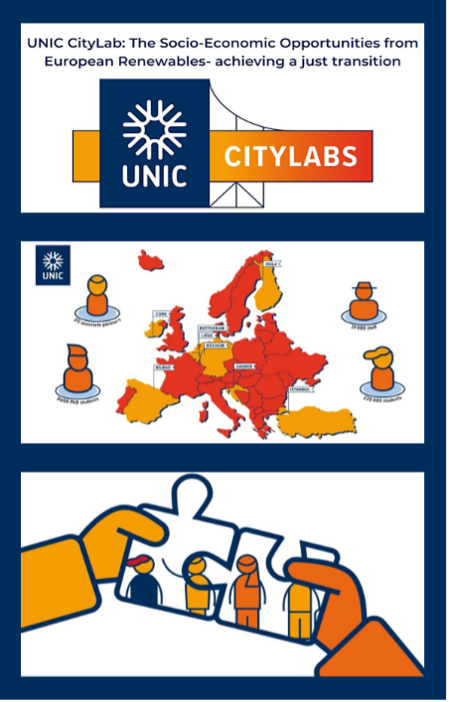 |
| Co-hosted Workshop
16th of June 2022, 14:00 (GMT) |
The Design Impact Transition platform at Erasmus University Rotterdam and STEPS from University College Cork co-hosted a workshop to encourage new opportunities to share work and ideas to further action-oriented research for energy transitions and climate neutrality. Bringing together multidisciplinary expertise around this complex challenge.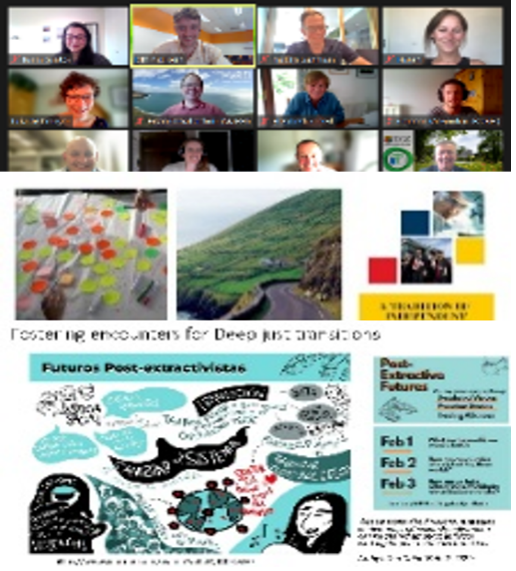 |
| World Café
Thursday, 5 May, 2022 Establishing a statement of principles for community engagement with civil engineering
|
The Institution of Civil Engineers have established a “Knowledge Network” on community engagement for infrastructure development.
A World Café event was held in July 2022 where STEPS research with EirGrid was discussed. Work with the institution of civil engineers has led to the publication of a paper: ‘Establishing a statement of principles for community engagement with civil engineering’ Proceedings of the Institution of Civil Engineers-Civil Engineering. 05/2022.
|
|
STEPS Kick off Wednesday, 2 March, 2022 PUBLIC ENGAGEMENT WITH ENERGY TRANSITIONS- Aligning Research and Practice
|
The workshop aimed to obtain a shared vision of project outputs and identify good practice principles. Key objectives included prioritising areas of impact, such as tracking institutional change, evaluating the community scheme, and understanding evolving engagement practices.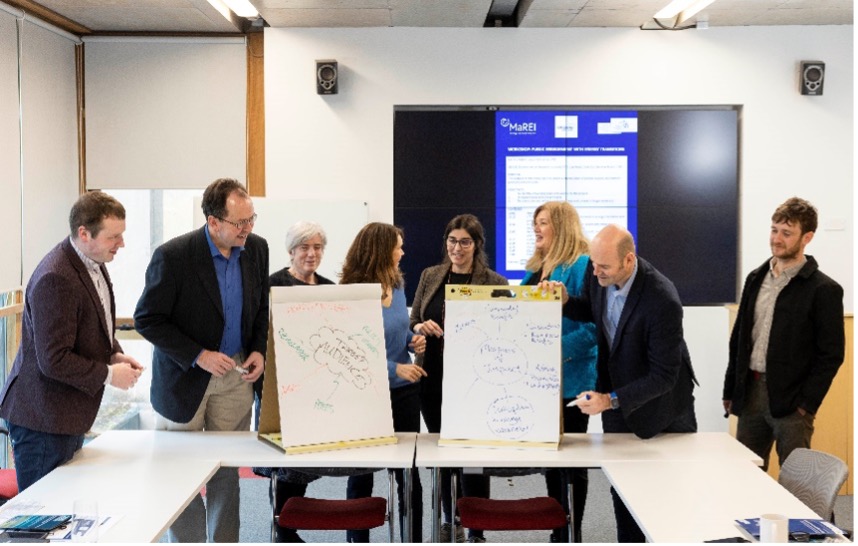 |



